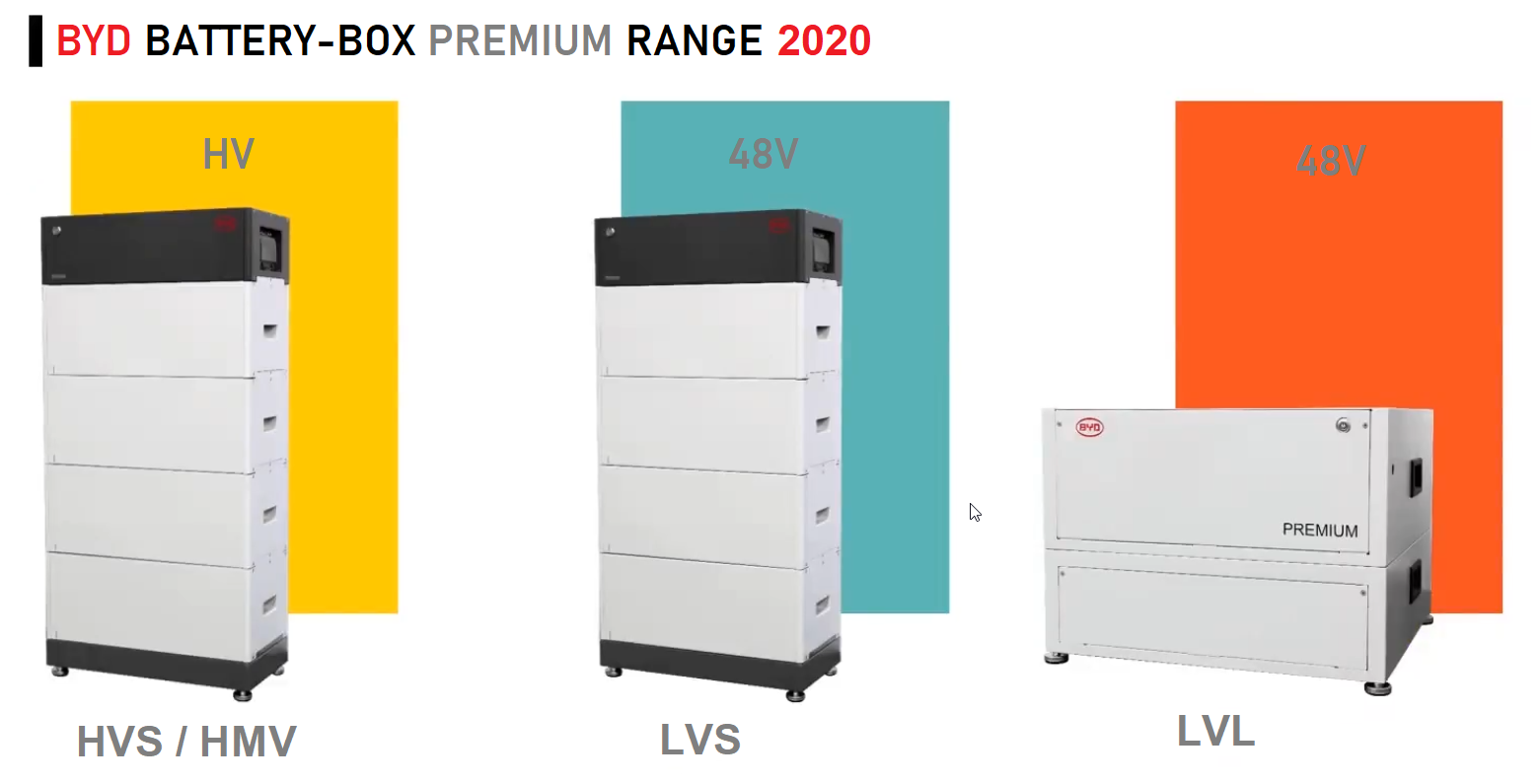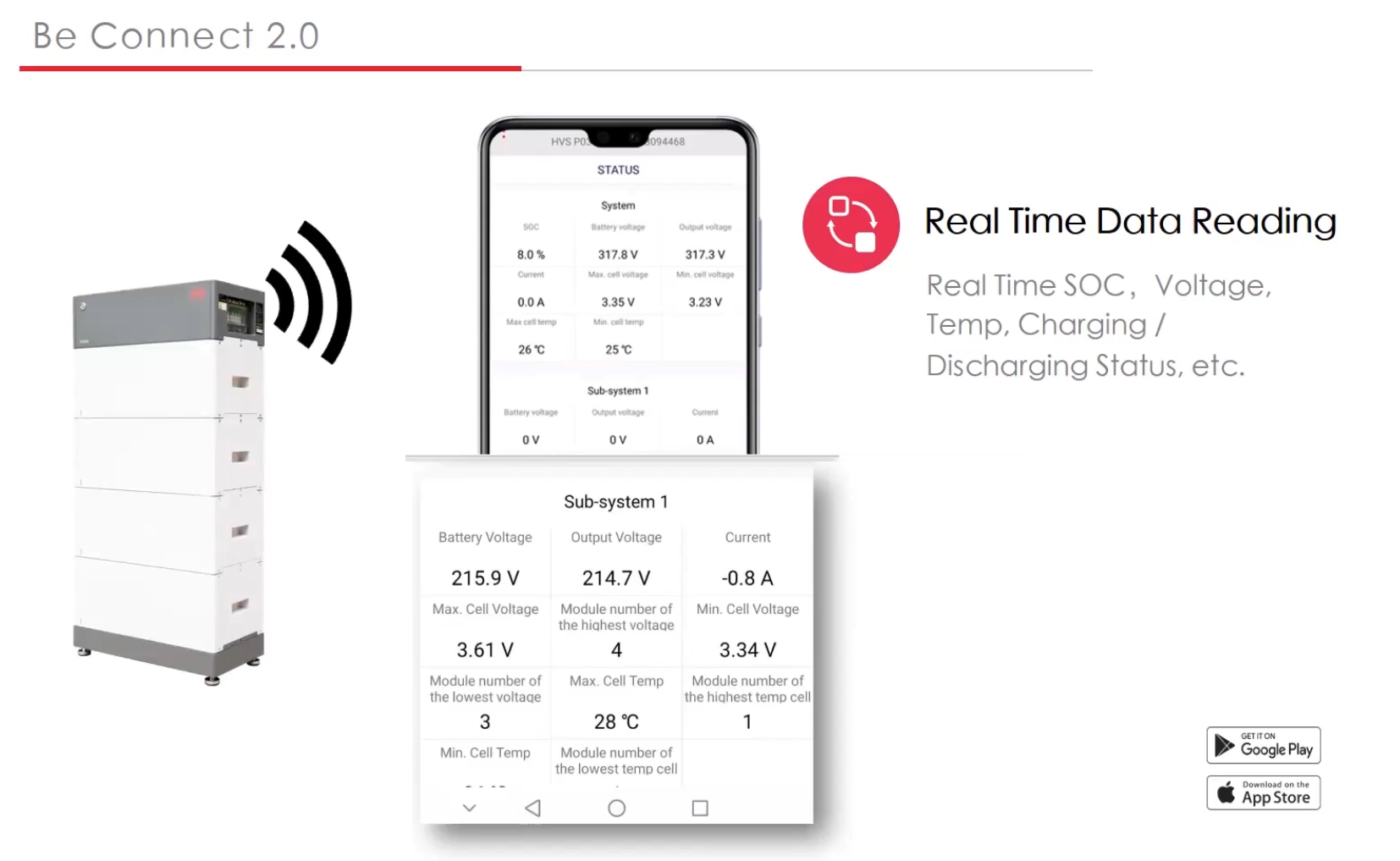BYD Battery Review
home > battery storage > best battery systems > BYD Review
BYD is the largest Chinese manufacturer of rechargeable lithium batteries and has dominated the Chinese electric vehicle and energy storage market for some time. From its very humble beginnings back in 1995, BYD, which is short for ‘Build Your Dreams’, has grown exponentially to become one of the world’s largest stationary battery manufacturers, offering a wide range of lithium energy storage systems for both commercial and residential applications.
The BYD company, based in Shenzhen China, is focused on four different industry sectors; Automotive, Rail Transit, Electronics and New Energy which encompasses solar and battery systems. The company first started as a battery manufacturer before entering the automotive market in 2003 and is now a multi-billion dollar company with over 220,000 employees and a vast global distribution network. BYD produces a variety of different lithium chemistries however, the LFP or Lithium Ferro Phosphate, are the chemistry of choice for all stationary applications due to the increased safety and stability.
High Voltage batteries - HV
BYD pioneered the stackable, tower battery concept with the first generation high-voltage (HV) battery system launched back in 2017. This unique design was in response to the new HV hybrid inverters being developed after the first high voltage 400V battery, the Tesla Powerwall was released in 2015. Since then, the energy storage industry has slowly shifted towards higher voltage, 400V energy storage systems due to the increased efficiency and lower cost – Solar PV arrays generally operate in the 300V-500V range and since this is much closer to the battery voltage, it results in less power conversion and lower losses. The BYD tower concept uses multiple 50V or 100V battery modules connected in series to create a high voltage battery system of various capacities and voltages from 150V to 400V.
The BYD Battery range
BYD has now released its third generation of energy storage batteries and expanded its range to cater for a wider variety of energy storage applications. Scalability appears to be a primary design feature of the new generation battery systems with modular (stackable) options capable of storage capacities of up to one megawatt hour, 1MWh.
The new Battery-Box Premium range is available in three main variants; the high voltage HVS & HVM range, and two lower voltage 48V options, the LVS and the LVL Premium.
Battery-Box HVS & HVM
The high voltage (HV) series is a more advanced modular tower system built around the same Lithium Iron Phosphate cells but available in two voltage options to cater for different inverter voltage and energy storage requirements. The modules are connected in series to increase the battery system voltage from a minimum of 200V (2 x HVS modules) up to a maximum of 5 modules. The HVM requires a minimum of 3 x 50V modules (150V) up to a maximum of eight. Note, the two battery variation cannot be used together. The tower system requires a top mounted battery monitoring unit (BMU) to manage and control the individual modules and communicate with a compatible HV hybrid inverter.
HVM & HVS key features
HVS = 2.56kWh (100%) usable
HVM = 2.76kWh (100%) usable
Round trip efficiency = 96.5%
BYD HVS 2.56kWh = AU$2,000 – $ per usable kWh = AU$780
Warranty: 10 years to 60% retained capacity (EOL). Ref Warranty document.
IP55 weather rating – Suitable for protected outdoor areas
Battery-Box LVS
The LVS series, as the name suggests, is a low voltage (LV) modular battery system that is built around the same Lithium Iron Phosphate cells configured to provide a nominal voltage of 51.2V. Like the HV version, the LV tower system requires a battery monitoring unit (BMU) to manage and control the individual modules. Each battery module is 4.0kWh and up to 6 modules can be installed in one tower for a total of 24kWh. For systems requiring greater storage capacity, multiple towers of 4 modules can be linked together to a maximum of 16 towers, or 256kWh.
LVS 4.0 key features
4.0kWh (100%) usable
Scalable from 4kWh to 256kWh
Power output – Continuous @ 51.2V = 3.3kW, Max Peak 4.6kW (5 sec)
Round trip efficiency = 95.0%
BYD B-Box LVL 4.0kWh = AU$3,000 – $ per usable kWh = AU$750
Warranty: 10 years to 60% retained capacity (EOL). Ref Warranty document.
IP55 weather rating – Suitable for protected outdoor areas
LVL Premium
The first-generation B-Box Pro, low-voltage (48V) batteries become popular due to the extremely competitive pricing and compatibility with many of the leading off-grid and hybrid inverters. Building on this success, the new Battery-Box Premium LVL series is similar in many ways to the original but has increased capacity to 15.4kWh along with many technical improvements to make it easier to install and configure. Also, a notable feature is that the new LVL series is compatible with the previous gen-2 version, so some older battery systems can be upgraded, something which is not possible with many other battery brands.
LVL Premium key features
15.36kWh (100%) usable
Scalable from 15.36kWh to 983kWh
Power output – Continuous @ 51.2V = 12.8kW, Max Peak 19.2kW (5 sec)
Round trip efficiency = 95.2%
BYD B-Box LVL 15.4kWh = AU$10,500 – $ per usable kWh = AU$684
Warranty: 10 years to 60% retained capacity (EOL). Ref Warranty document.
Operating Temperature: -10C to +50C (derating from +5C to -10C)
IP20 – Indoor only
Battery-Box LV Flex
New for 2021
In April 2021, BYD announced a new battery line exclusive to the booming Australian energy storage market called the Battery-Box LV Flex. This low voltage, rack-mount battery module is designed to be used in customised battery solutions where system designers can integrate the 5kWh LV Flex modules into a wide variety of off-grid, hybrid and specialised BESS applications.
The new BYD Battery-Box LV Flex available June 2021 - Image credit BYD
BYD compatible inverters
One of the key selling points of the BYD range is the compatibility with a wide range of off-grid and hybrid inverters. To ensure this, BYD set up a large facility to test the battery functions correctly with all of the leading inverter brands. BYD batteries rely on the CAN-Bus communication protocol which has become the industry standard for energy storage systems. Approved BYD inverters can be easily configured with most of the popular hybrid and battery inverter/chargers on the market.
Hybrid Inverters - 48V
Hybrid Inverters - HV
Off-grid Inverters - 48V
Lithium Prismatic cells
As opposed to many other manufacturers which use cylindrical battery cells, BYD uses the prismatic battery design which they claim increases reliability and safety. Like many other manufacturers of stationary energy storage systems, BYD’s chemistry of choice is Lithium Iron Phosphate or LFP due to its stability and proven performance. LFP is widely regarded as the safest lithium chemistry and more importantly, it does not use Cobolt which is a rare, toxic and expensive raw material with a history of controversial extraction methods.
BYD Prismatic Cell assembly - Image credit BYD
BYD is a vertically integrated company meaning they control the complete supply chain from mineral battery cells to completed battery modules. This enables the company to control every aspect of the manufacturing process and reduces costs through improved production efficiency.
BYD Warranty
All BYD batteries are backed by the industry-standard 10-year warranty period based on 2 main factors, the remaining capacity after 10 years and energy throughput based on charge and discharge cycles. All batteries reduce capacity over time due to internal cell degradation and the BYD warranty dictates the retained storage capacity will be greater than 60% of the original rated capacity which is in line with the other leading manufacturers LG Chem and PylonTech.
Battery monitoring App
BYD is one of the first manufacturers to develop a battery specific monitoring portal as opposed to relying on the inverter to relay battery specific data and potential performance issues or faults. One big advantage of this is the ability to monitor the battery at the individual module level, rather than at the system level. Most inverters will only report a battery fault or issue once the battery has shut down which often only occurs once a battery module has become unstable or suffered an internal fault. Having the ability to see module-level information will provide greater insight into battery performance and allow potential issues to be detected and diagnosed much earlier.
Conclusion
BYD has grown rapidly to become one of the leading stationary energy storage manufacturers with an advanced product lineup designed to cater for a wide variety of on-grid, off-grid residential and commercial energy storage applications. The company now offers the widest variety of battery options compatible with all the leading inverter brands.
Early models did show some performance issues, particularly when installed in cold environments, however, newer models have addressed many of these concerns. One commendable undertaking by BYD is the close collaboration with inverter manufacturers and installers to develop smart user-friendly battery systems which are easier to set up and monitor.
The performance of the new models has been reported to be very good and this is backed by the accelerated testing currently being undertaken at ITP renewables battery test centre in Canberra.







